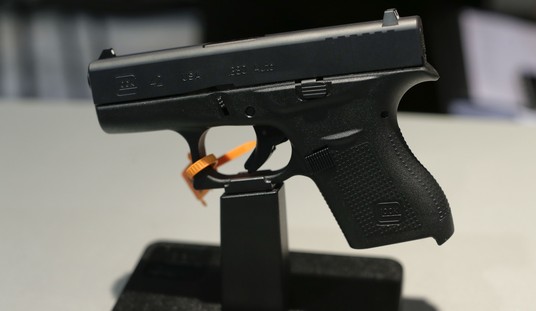The anti-gun left desperately wants gun control to be a thing. However, the plain text of the Constitution often thwarts them in debate after debate. “Shall not be infringed” is about as clear as it gets.
Now, don’t get me wrong. Our rights are infringed left and right when it comes to the Second Amendment. However, all that infringement is why so many of us refuse to give up any further ground on the subject of gun rights. We’re just not going to budge.
But the anti-gunners continue to try and make the case, hoping they can sway not just the undecideds, but maybe even some on our side by claiming gun control really is constitutional. And the mental gymnastics they engage in is really quite impressive.
The Second Amendment was included in the Bill of Rights because of concern that a standing army might pose a threat to the security of free states, thus the inclusion in the amendment of the language “a well regulated militia, being necessary to the security of a free state.”
For more than 200 years after the adoption of the Second Amendment, it was uniformly understood that it did not restrict or prohibit federal or state governments from enacting gun control legislation. In a PBS interview, Warren Burger, a conservative who was chief justice of the Supreme Court from 1969 to 1986, stated that the National Rifle Association’s claims that the Second Amendment prohibited the federal regulation of firearms was “one of the greatest pieces of fraud — I repeat the word fraud — on the American public by special interest groups I have ever seen in my lifetime.”
In 2008, in Heller v. District of Columbia, the U.S. Supreme Court overturned more than 200 years of jurisprudence and, in a 5-4 decision, held for the first time that there was an individual right to bear arms. But even that decision made it clear that this newfound constitutional right did not prohibit the states or the federal government from strictly regulating the sale, ownership or use of firearms, including completely banning the sale of certain categories of guns.
It should also be noted that the Supreme Court’s earlier rulings are irrelevant…much like the Dread Scott decision and Plessey v. Ferguson, which labeled segregation as constitutional.
In other words, previous jurisprudence doesn’t necessarily mean anything.
While Heller does permit the regulation of certain categories of firearms, the test here is whether those weapons are deemed “unusual.” In other words, how common is the ownership of said category of firearms? This was in place so as to not completely overturn the National Firearms Act of 1934. Since fully automatic weapons aren’t in common ownership at this time, they fall within the scope of what the Court was talking about in Heller.
But our current debate isn’t about an unusual type of gun. It’s about so-called assault rifles, also known as modern sporting rifles. These are perhaps the most popular firearm in the country today. Tens of millions of these weapons have been sold. They’re as common as air at this point.
Further, if you want to get into a discussion of previous court cases, keep in mind that the previous ruling on gun control was United States v. Miller, which found Miller’s possession of a sawed-off shotgun was illegal since there was no military application for said weapon. In other words, the Miller decision found that the Second Amendment protects only the ownership of military-type weapons, which gun grabbers repeatedly say is the only use for the AR.
Overall, the case being made here is flimsy, to say the least. In fact, a case could be made that many of our existing gun laws deserve to be overturned based on Miller alone.
At this point, the constitutional case for gun control is awfully flimsy. That won’t stop gun grabbers from trying it anyway.








Join the conversation as a VIP Member